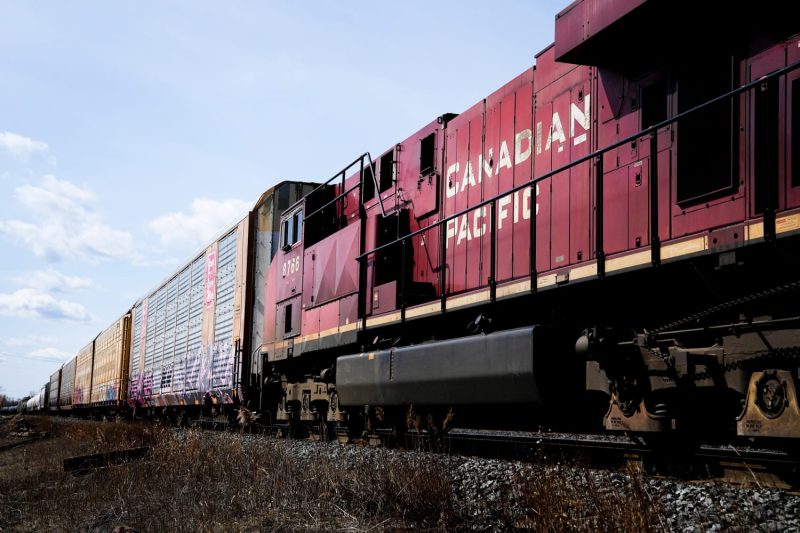The possible work stoppage at Canada’s two largest railroads, Canadian National Railway (CN) and Canadian Pacific Railway (CP), has created concerns about potential disruptions to the U.S. supply chain. The impact of such a stoppage would extend beyond Canadian borders, affecting multiple industries and businesses that rely on efficient rail transportation for their operations.
One of the key concerns in the event of a work stoppage at CN and CP is the disruption to the flow of goods and commodities between Canada and the U.S. These two railroads play a crucial role in facilitating trade between the two countries, with a significant volume of goods moving across the border via rail each day. Any interruption to this flow could lead to delays in delivery times, increased transportation costs, and potential shortages of essential products on both sides of the border.
The automotive industry, in particular, could be significantly impacted by a work stoppage at CN and CP. Both railroads are key transporters of auto parts and vehicles, and any disruption in their operations could lead to production delays at automotive plants in both Canada and the U.S. This, in turn, could impact the availability of cars for consumers and disrupt the entire automotive supply chain.
The agriculture sector is another industry that would feel the effects of a rail work stoppage. Canadian agriculture products, such as grain, oilseeds, and livestock, rely heavily on rail transportation to reach U.S. markets. Any delays in shipping these products could lead to spoilage, reduced market access, and financial losses for farmers and producers on both sides of the border.
Moreover, a work stoppage at CN and CP could have a ripple effect on other industries that depend on rail transportation for their operations. From energy and chemicals to consumer goods and construction materials, a disruption in rail service could lead to widespread disruptions in the supply chain, impacting businesses of all sizes and sectors.
In response to the looming threat of a work stoppage, both the Canadian and U.S. governments are closely monitoring the situation and urging the railroads and labor unions to reach a timely resolution. The importance of maintaining a reliable and efficient rail network for cross-border trade cannot be overstated, and any prolonged disruption could have serious economic consequences for both countries.
In conclusion, the possible work stoppage at Canada’s two largest railroads, CN and CP, has raised significant concerns about the potential disruptions to the U.S. supply chain. The impact of such a stoppage would be felt across multiple industries, with the automotive and agriculture sectors particularly vulnerable to delays and shortages. It is crucial for all parties involved to work towards a swift resolution to prevent any lasting damage to the vital trade relationship between Canada and the U.S.



























